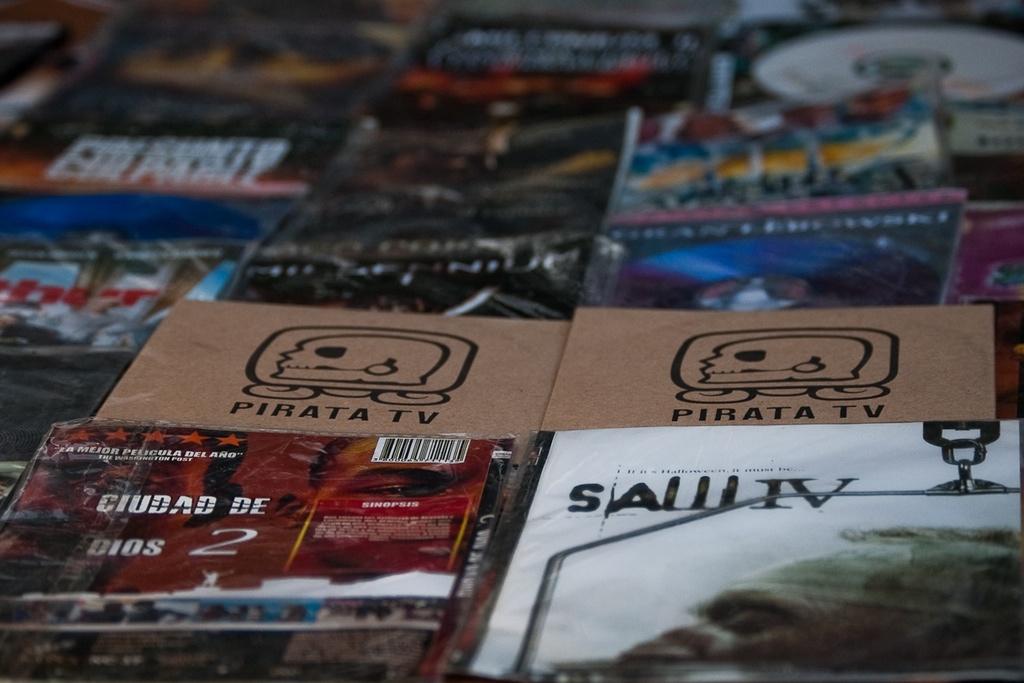Guatemala’s alternative news network
PIRATA TV uses bootleg DVDs to bypass the traditional media channels.
GUATEMALA CITY, Guatemala — “What should we cover, where should we put the camera, who should we give the microphone to?” Eduardo Spiegler asked from his apartment.
He admits that decision is tough one. But he charges the camera should be turned on the local media for failing to properly cover the country’s problems. The microphone, he adds, should be given to a wider range of people.
To do this, Spiegel started PIRATA TV, a collaborative project by 50 local cinematographers, writers, journalists, artists and educators. PIRATA TV is part journalism, part documentary and part artistic statement. And it uses bootleg DVDs to bypass the traditional media channels.
Spiegler — a laid-back, but motivated 29-year-old with a background in film — says his project is a response to what he sees as a monopoly within the Guatemalan television industry.
Spiegler argues that Guatemala’s television industry falls short on several accounts, which only worsens to the nation’s already severe problems. The industry does not offer sufficient locally produced content, provide educational shows or conduct significant investigative reports, he says.
Four channels can be picked up for free with a regular antenna, but they are all run by media mogul Remigio Angel Gonzalez. Spiegler says the four stations put little money into developing local shows, preferring to re-run foreign programming alongside sponsored shows and local news.
He adds that these stations have never broadcast a show in any of the Mayan languages — despite 40 percent of the population being indigenous — and the only educational children’s show features the mascot and jingle of a local pizza chain.
Spiegler believes the media should be tackling issues like hunger and chronic malnutrition among children, a corrupt political system, constant violence and an insufficient education system.
GlobalPost in Guatemala: A tiny country with a big crime problem
“For a country so rich not only in natural resources, but culturally as well, it’s an insult.”
PIRATA TV started as an idea for a critical documentary about the media monopoly. Now it’s an effort to create a season of six, two-hour “transmissions” that tries to fill in the gaps of the mainstream media. Eschewing conventional media distribution methods, PIRATA TV utilizes the local black market’s pirated DVD vendors to hawk the transmissions for about $4 a piece.
The project aims to show that a different media model — one that showcases local cultural, linguistic, educational, artistic and creative merit — is possible. The first and second transmissions feature parts like a language program in Q'echci, a kids show that addresses conservation and recycling, street-level looks at the eviction of vendors, interviews with renowned local cinematographer Sergio Valdes and author Raul de la Horra.
“The argument made by the TV channels, traditionally, is that there isn’t a budget to research and produce local shows. PIRATA TV wants to show that this is not true, that it’s totally possible to create Guatemalan content, and that its not a question of budget, nor of equipment or human resources, but that it’s executive decisions to not produce educational or local content.”
GlobalPost in Guatemala: Art out of violence
Work is now underway on the third of the six transmissions planned for the first season, and it’s an operation on a shoestring budget. Scenes not filmed on the street are done in Spiegler’s apartment. And everyone’s doing it for free at the moment.
They are, however, making ground. The project is known within the capital, and their second transmission sold out within days. El Periodico, the largest news daily, ran a feature on PIRATA TV, and local icon “El Buki” (a pirated DVD vendor renowned for his curation of rare films) promotes its sale at his busy market stand.
PIRATA TV faces many challenges. Gustavo Berganza is the director of the Association for the Development, Organizational Service and Socio-Cultural Studies, which monitors media consumption patterns in the country. Research from his organization shows that television serves as the primary source of information about the country for more than 50 percent of the population. Ninety percent of survey respondents watch at least one of the four channels.
Berganza agrees that the TV stations have a limited scope, avoid certain themes and have limited interest in carrying out investigations.
“It’s relatively expensive for the informative media to maintain a model of investigation, but the media outlets that do have the money, don’t do it. The free TV channels are the ones who earn the most, that sell the most advertising but pay their reporters least, and have the least interest in improving their investigative reporting, because it costs so much money to produce it.”
However, Berganza points out that the television stations earn very high approval rates. His data shows that TV remains the most popular form of media, and the audience sees it as an essential source of information in Guatemala. Attempts to clear funding for a public broadcaster with a social prerogative have had trouble gaining traction, as the majority of people don’t see the need.
Spiegler feels this exemplifies the problem: Viewers become accustomed to television stations that syndicate foreign content or produce noncontroversial entertainment or news. This in turn leaves the viewing audience unaware of the unique, untold stories happening within the country.
“The purpose of PIRATA TV is to finally have a local example, so as to have a point of comparison for the future. With a camera and a computer, we can show the immense possibility of audiovisual communication in Guatemala.”
More from GlobalPost: Egypt's youth continue their fight on the airwaves
